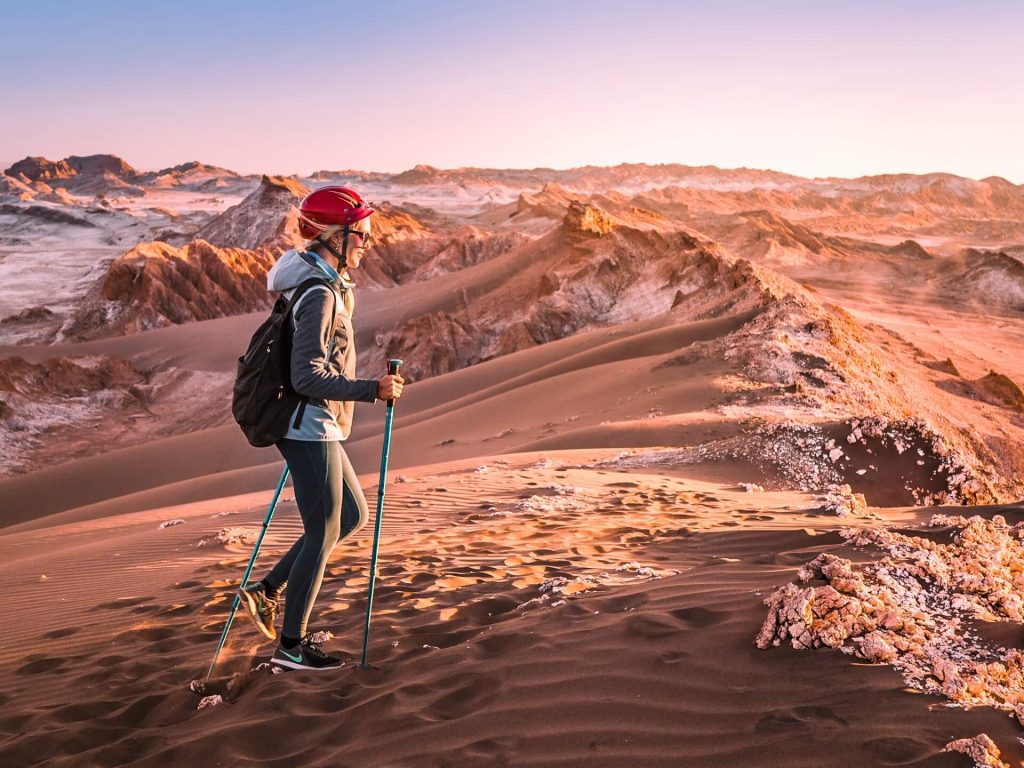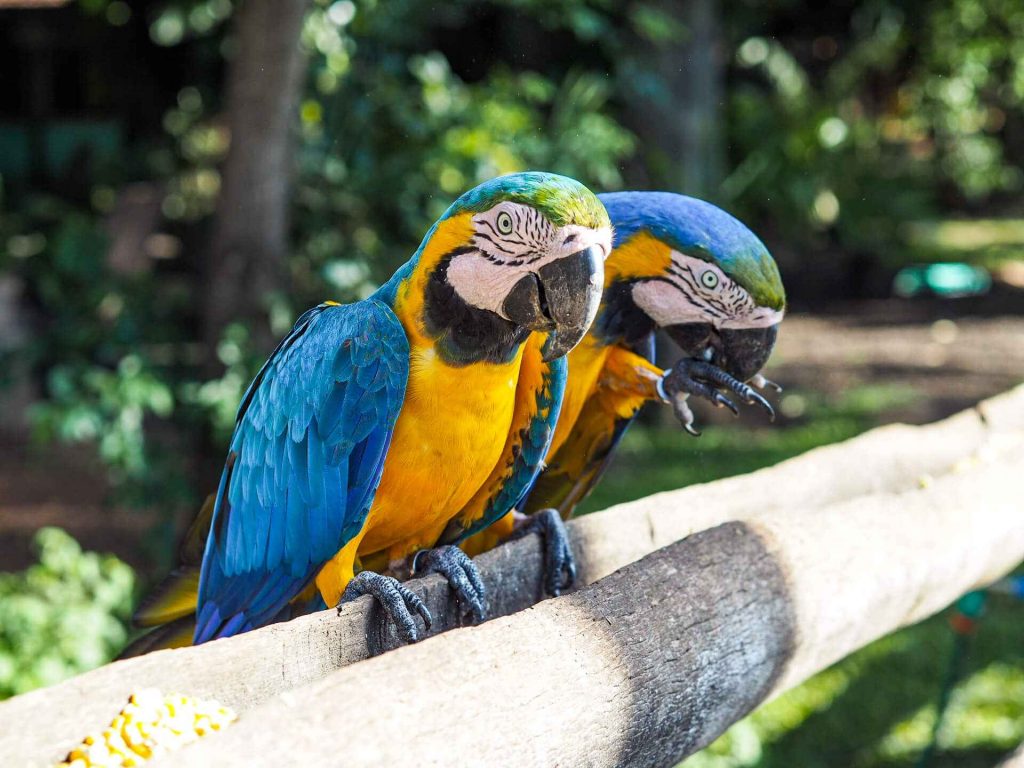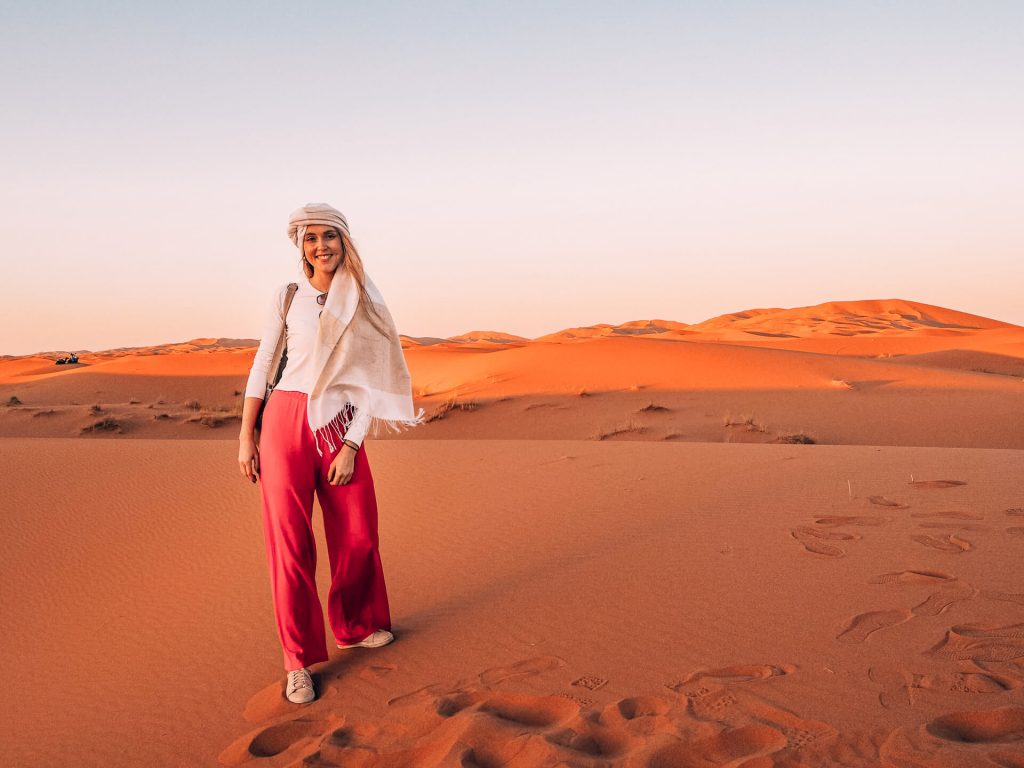Responsible travel in Morocco
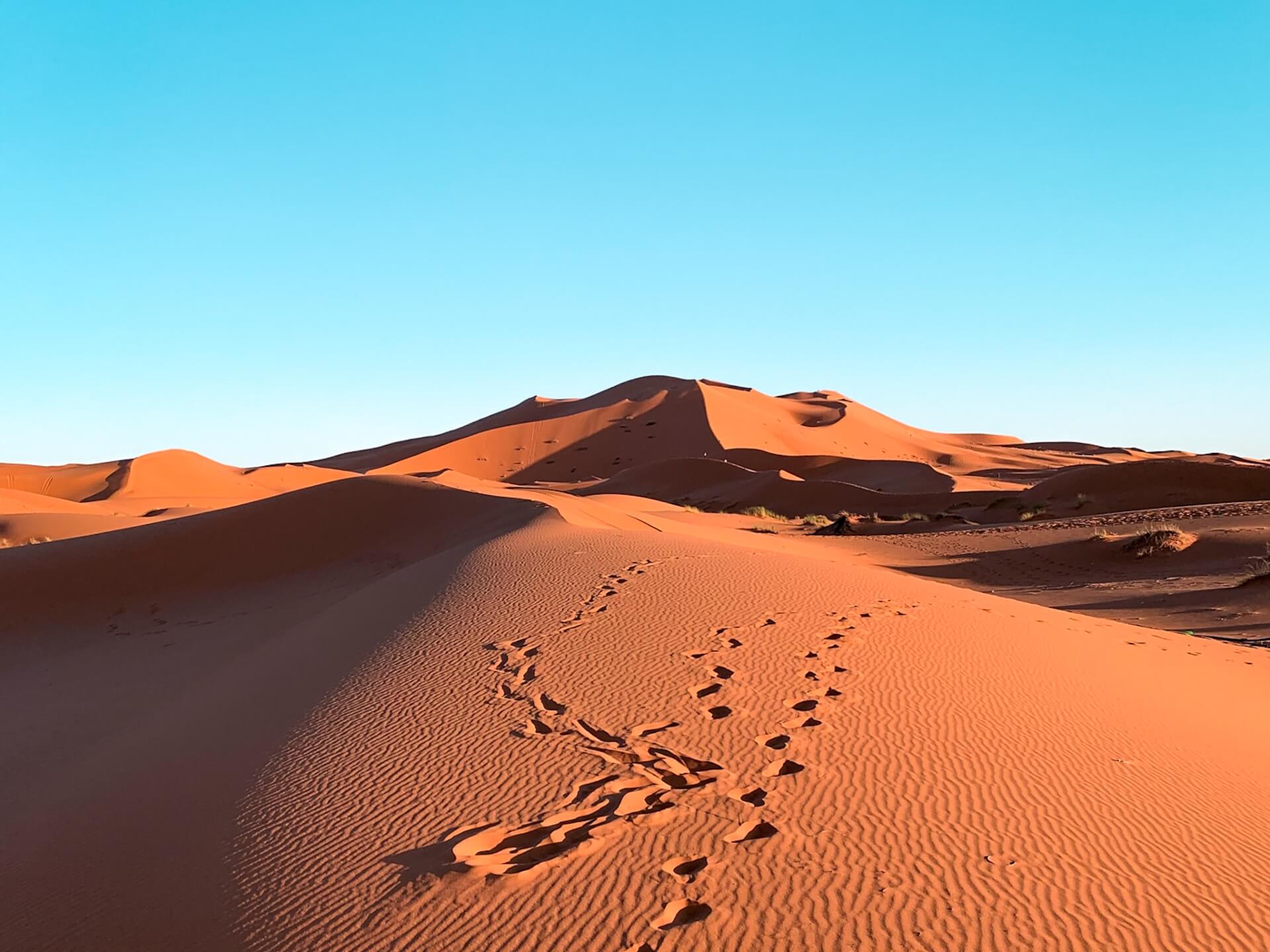
Traveling in Morocco can be both magical and chaotic. With its diverse nature, ancient cities and strong traditions, this North African jewel of a country will broaden your horizons and give you infinitely memorable experiences.
You’ll be surrounded by a culture and environment which might be very different from what you’re used to. While this will undoubtedly enrich your visit, it can also be a source of misunderstandings and unwise decisions. Therefore, in this post I’m highlighting the importance of responsible travel in Morocco and sharing 10 actionable tips for your trip to this gorgeous country.
Disclosure: This article contains affiliate links from which I may make a commission at no additional cost to you if you make a purchase.
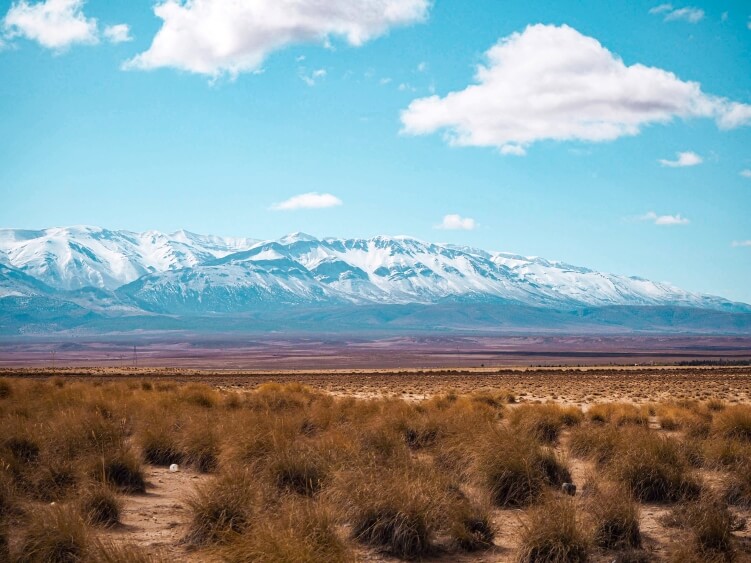
What is responsible travel?
In a nutshell, sustainable travel, ethical travel, responsible travel – call it what you want – is about being mindful of the impact you have on the environment, culture and local communities in the countries you’re visiting. The goal is to leave each place better than you found it.
The number of tourists visiting Morocco has increased significantly over the past years and is expected to continue to do so. There’s no doubt that tourism drives a lot of business, creates jobs and benefits the economy of Morocco. However, it can also put pressure on the infrastructure, cause cultural clashes with the locals and harm delicate ecosystems.
In order to minimize the negative effects of your actions and leave the lightest footprint while travelling in this beautiful country, it’s important to engage in responsible travel in Morocco (and of course in other countries as well).
To help you make more informed decisions while journeying through Morocco, I’ve put together a list of some of the most essential considerations to keep in mind.
Responsible travel in Morocco – 10 practical tips
1. Don’t use wild animals as your photo props
In Morocco, like in many places around the world, tourists are offered to take a photo with a variety of wild animals in exchange for money. The animal is clearly not the owner’s pet but simply a tool for them to earn income in a very unethical way.
On the famous Jemaa El-Fnaa square in Marrakech, you’ll see dozens of distressed monkeys screaming and being dragged by chains around their necks. Right next to them, there are numerous snake charmers who allegedly have stitched the snakes’ mouths together or removed the fangs to prevent the snakes from biting. Other ‘photo model’ animals that we encountered in Morocco were peacocks, parrots, geese that were tied to a wall by their feet, and a giant ostrich being walked around on the streets of Chefchaouen. All this for the entertainment of tourists.
You might think that just one photo doesn’t make a difference, but it does – with each photo you take, you’re providing an incentive for those people to continue this animal cruelty.
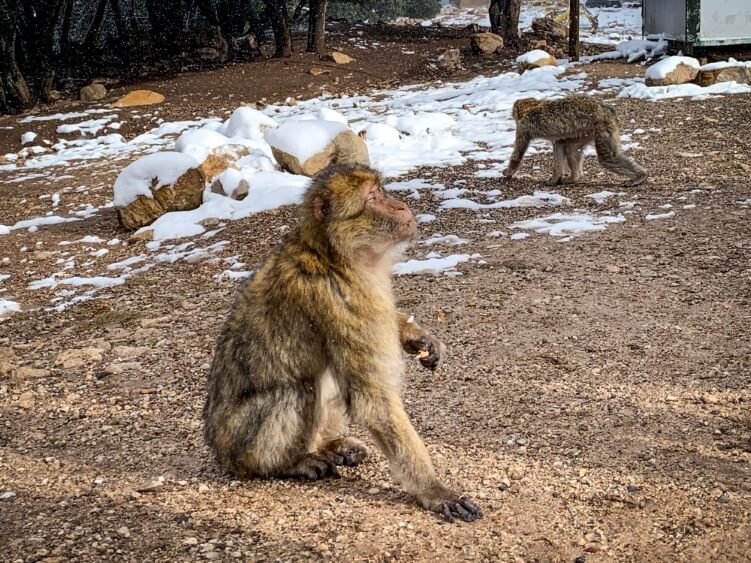
The monkeys in the photo are called barbary apes and they live freely in the Atlas mountains in Morocco.
2. Reduce your plastic footprint
The amount of waste that I saw on the roadsides when travelling across Morocco was appalling. The obvious way to avoid contributing to this problem is to simply consume less plastic. Say no to straws when ordering a drink, use reusable shopping bags instead of plastic bags, and most importantly, limit the use of disposable plastic bottles. By refilling a bottle instead of constantly buying new ones, you can drastically reduce the amount of plastic waste you create.
Keep in mind though that Moroccan tap water might not be the gentlest towards foreigners’ stomachs. In order to avoid spending your holiday sitting on a toilet, I’d recommend using a water purifier such as the Grayl Geopress bottle. It was the first time for me to use the Geopress when travelling and it was such a game-changer! It purifies even the nastiest water by filtering out viruses, bacteria, heavy metals, microplastics and chemicals.
During our 11-day journey in the country, we filtered all the tap water we consumed and avoided buying at least 30 plastic bottles! With this purifier you can significantly reduce your plastic footprint while at the same time saving the money you’d otherwise spend on buying all the bottled water – sounds like a win-win situation to me!
3. Limit your public displays of affection
Like in many Muslim countries, it is not very common in Morocco to physically express your affection for a person from the opposite sex when in public. Holding hands and hugging your significant other won’t get you in trouble but avoid kissing in public places as this could be frowned upon. Showing your affection is best kept behind closed doors.
If you’re an LGBT traveller, you need to be extra careful as being homosexual is unfortunately still illegal in Morocco and can result in a potential jail term. Plenty of local men kiss each other on the cheeks or hold hands though, which apparently is just an expression of friendship.
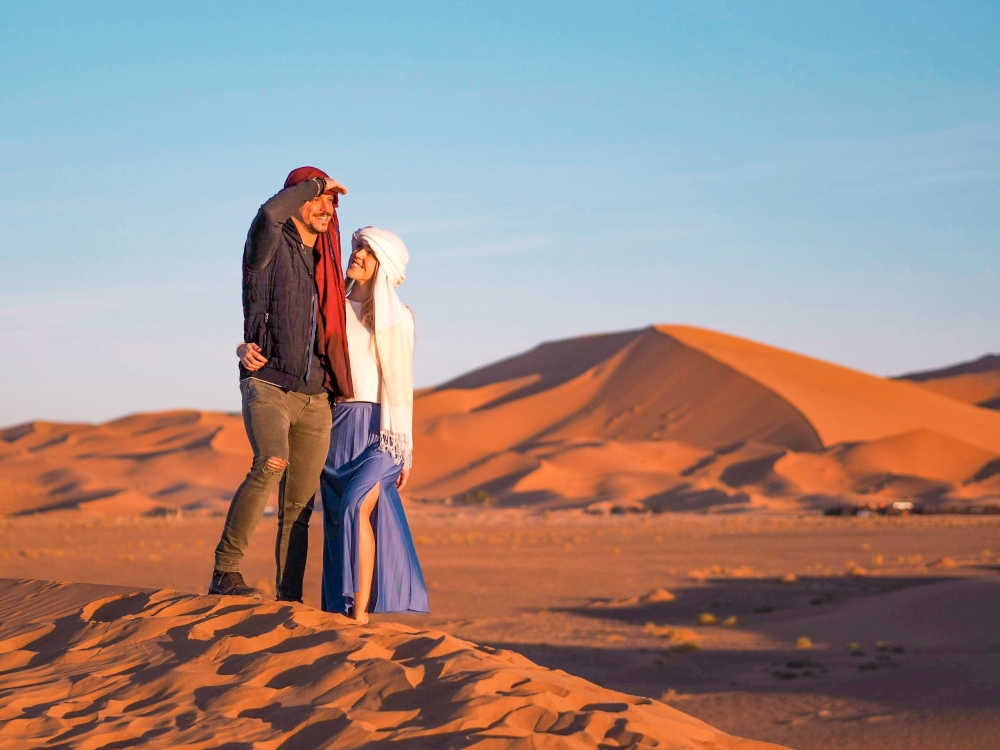
4. Dress modestly
Dress code in Morocco is not strict and you are allowed to wear whatever you want. Running around in hotpants and a crop top is not gonna get you arrested. However, if you’d like to avoid unwanted attention on the streets and be more respectful of the local culture, dress conservatively, especially in less touristy areas. This means covering your shoulders, cleavage and knees when in public places.
When you’re in your riad (Moroccan guesthouse) or in any other more private place, there’s no need to stress too much about the dress code. Also, based on my experience it’s totally fine to expose your shoulders for a quick photo.
It would be a good idea to pack a scarf or buy one in Morocco. You can throw it around your shoulders anytime and it also doubles as a turban, which might come in handy if you’re going on a Sahara desert tour.
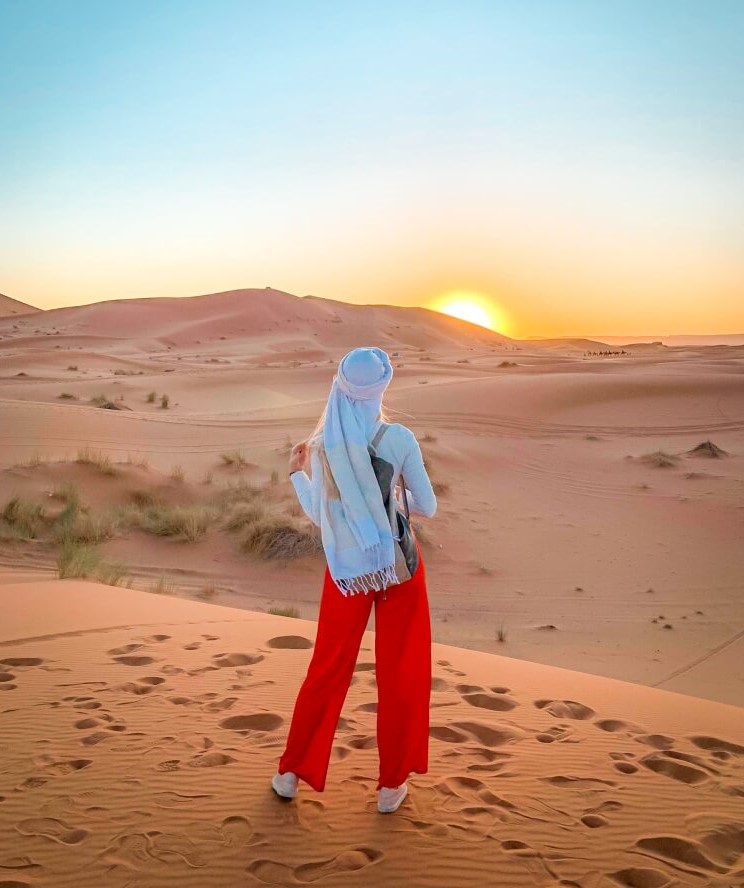
5. Stay in riads instead of large chain hotels
Riads are small Moroccan guesthouses typically owned by local families. By choosing to stay in riads, not only will you get a more authentic experience and have meaningful interactions with the locals running the guest house, but you’ll also contribute to a better distribution of income and support small businesses.
For similar reasons, buy your supplies and souvenirs at local markets and small businesses, not supermarkets. This way you’ll support the individual artisans, local farmers and cooperatives. Even better if you do your shopping outside of the main tourist areas.
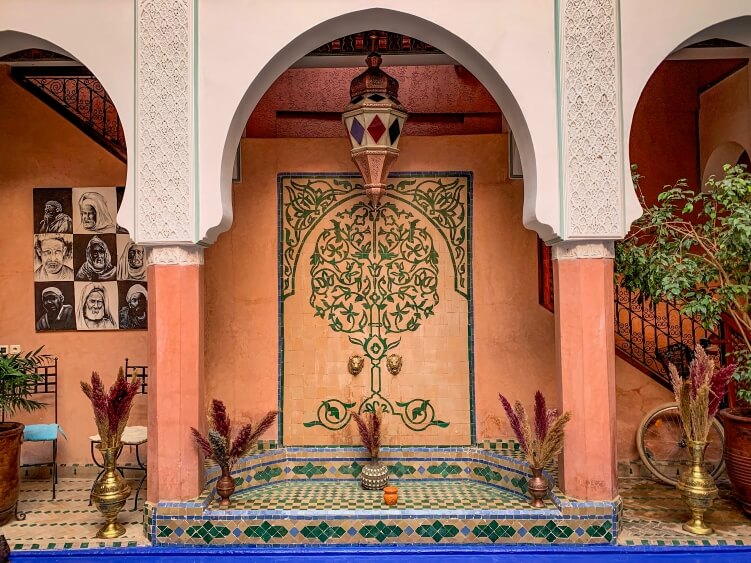
6. Be considerate when taking photos of locals
Many Moroccans (especially women and children) aren’t too happy when they’re photographed by tourists. You can clearly see it from their body language.
I noticed that when I was simply walking around with a camera in my hand, people started covering their faces even though I wasn’t planning to take photos of them. I asked a local guy about the reason why Moroccans tend to dislike being photographed. According to him, local women might get into trouble if their husbands see their photos posted on social media.
If you want to capture local people on your photos, do it from a distance. If you want to take portraits, simply ask for permission.
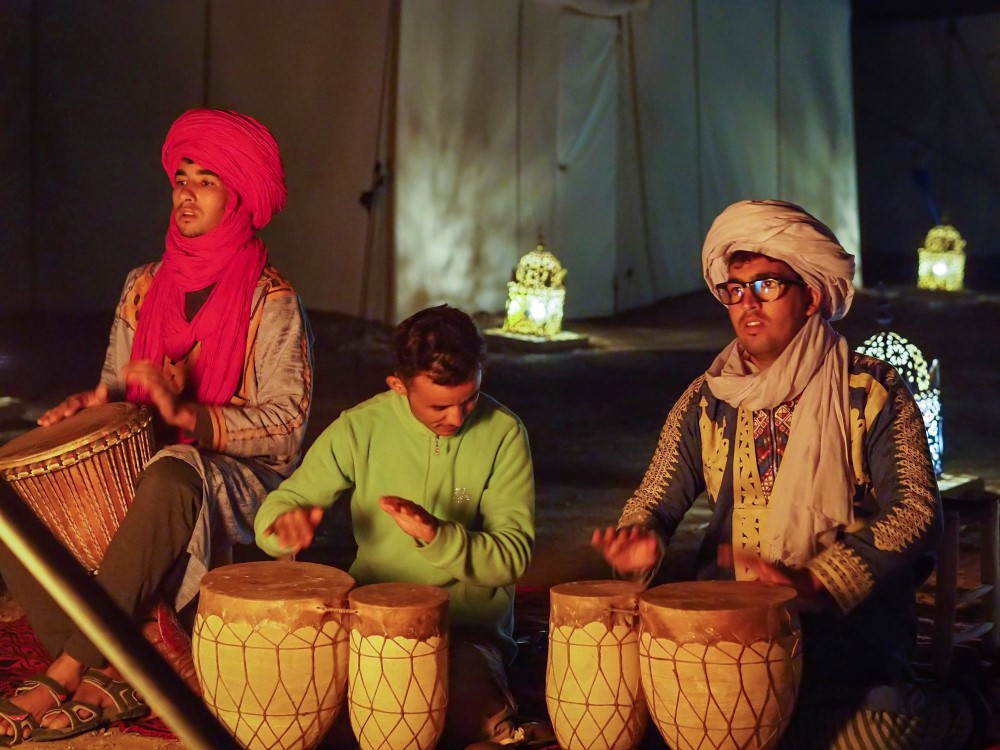
7. Participate in activities organized by Moroccans
Perhaps the easiest way to engage in responsible travel in Morocco is to join authentic tours and activities organized by locals. For instance, one of the best things to do in Marrakech is to take a tour of the medina with a local guide. This way you’ll have a genuine cultural experience, learn so much about the Moroccan customs and at the same time support the locals with your spending. You could also go on a guided trek in the Atlas mountains, visit a traditional Berber village, take a Moroccan cooking class or a pottery class – the options are endless.
During our stay in Chefchaouen, we took a cooking class organized by a Moroccan chef. Thanks to this experience, we had a chance to see Moroccan lifestyle from a local’s perspective, learned how to choose the right ingredients in the markets, and cooked one of the best meals we had during our entire trip!
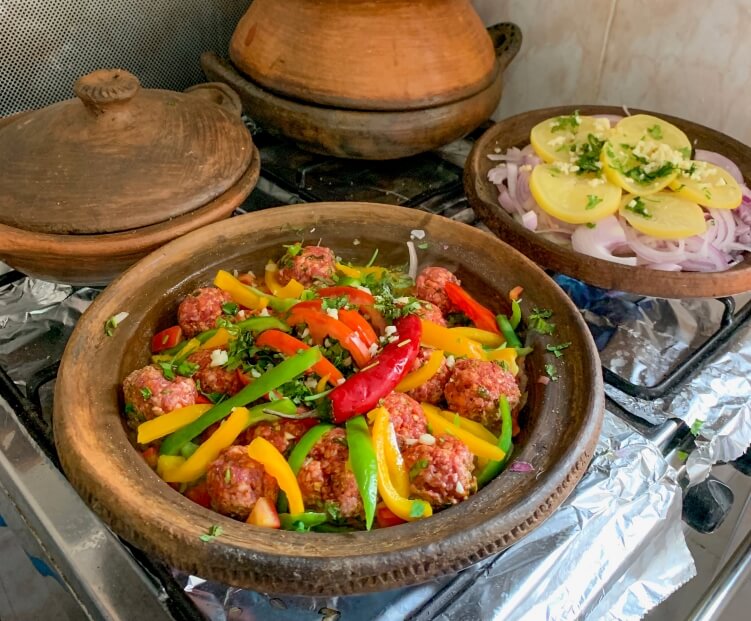
Here are some more ideas for joining activities hosted by locals:
8. If you plan to ride a camel, do your research beforehand
Is riding camels really a part of responsible travel in Morocco? I’d say ‘It depends’.
Camelback riding in Moroccan deserts is a highly popular activity among tourists. However, not all camel-experiences are ethical. Before booking a tour, read reviews and do your research to get an idea of whether the animals are treated humanely.
We had booked a Sahara tour that involved riding camels to our desert camp. Although I had done plenty of research about the tour company, I was initially quite concerned about whether I’d be contributing to a cruel system that abuses the animals. Luckily this didn’t seem to be the case at all! I was happy to see how gently our camels were treated and how healthy they looked.
Based on the conversations that I had with one of the camel-handlers, the camels only walk one tour per day (about 4 km in total), and they don’t have to carry people that weigh significantly over 100 kg. (If you’re above this weight limit you can still take the tour but you’ll be transported to the desert camp on a 4×4 car instead.)
Also, I’d recommend steering clear from the companies that allow two people on one camel at the same time – it’s simply too heavy for the animal.
Interested in going to the Sahara desert? Read the full story about our Sahara tour experience with a detailed itinerary and practical tips for choosing the right kind of tour for you.
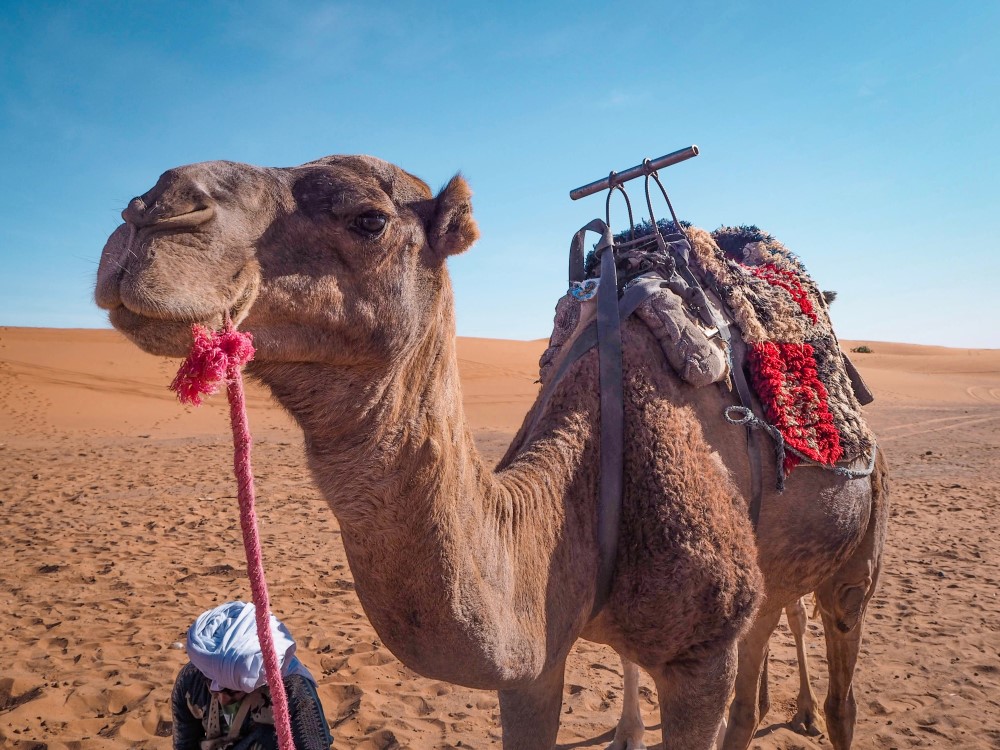
9. Don’t try to sneak into mosques
There are many beautiful mosques in Morocco and it might be tempting to step inside to capture a few photos. However, if you’re a non-Muslim, you’ll need to settle with admiring the mosques from the outside as it is forbidden to enter them.
Wondering how anyone can tell whether you’re Muslim or not? I’ve heard that the guards might ask you to recite the Quran if they’re in doubt! Don’t take the risk, show respect to the locals and stay outside.
P.S. The only mosque that a non-Muslim can visit in Morocco is the Hassan II Mosque in Casablanca and you’d need to join a guided tour.

Morocco has an extensive bus and train network which makes it fairly easy to navigate the country.
If you prefer to travel in a smaller crowd, find a “grand taxi” which is essentially a minivan taxi shared by strangers, all going to the same destination. These taxis gather at certain points in each city. Simply find one that is going to your destination and wait until the seats in the taxi get filled up. If you don’t want to wait you can also pay the price of a full taxi but that would defeat the purpose of using the shared taxis to reduce emissions.
Responsible travel in Morocco: final thoughts
I hope that this post gave you some inspiration to practice sustainable and ethical travel in Morocco! As you can see, there are plenty of easy steps we can take to minimize our environmental footprint, have more meaningful experiences and show respect to the local culture.
Do you have any other tips or recommendation for responsible travel in Morocco? Leave them in the comments!
Enjoyed reading this post on responsible travel in Morocco? Pin it!
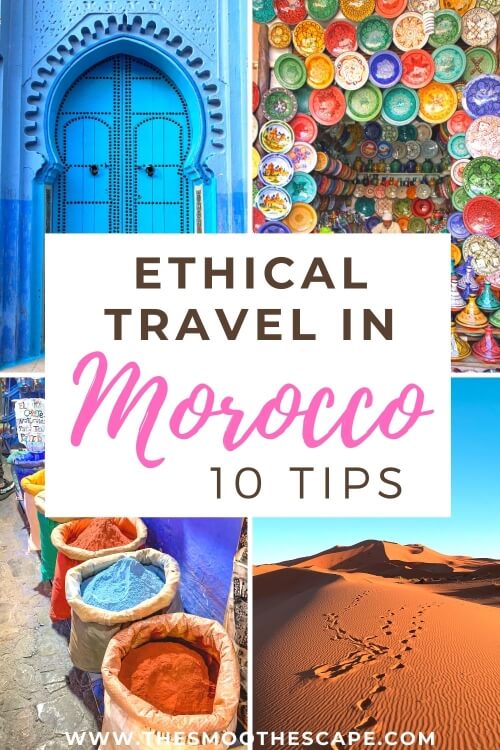
READ MORE:

